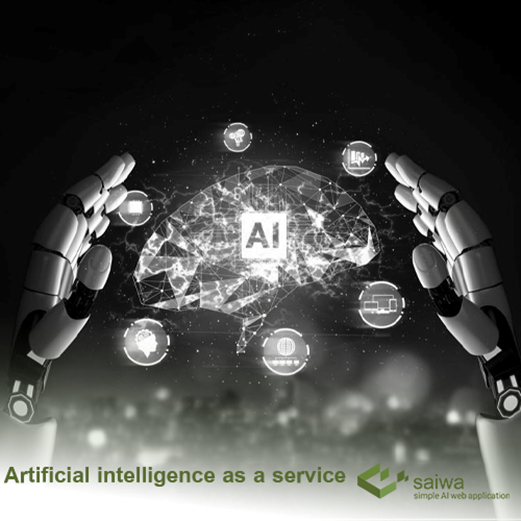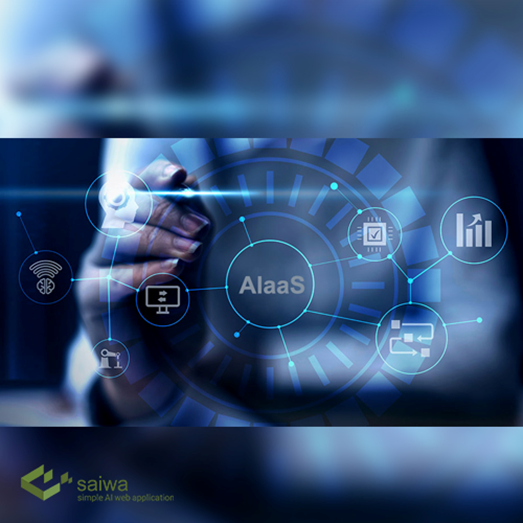Artificial intelligence as a service
Introduction
Artificial Intelligence (AI) has emerged as a transformative technology, revolutionizing various industries and opening up new possibilities for innovation. As organizations seek to harness the power of AI, a new paradigm known as Artificial Intelligence as a Service (AIaaS) has emerged. In this essay, we will explore the concept of AIaaS, its advantages, and its impact on businesses and society as a whole.
Understanding AI as a Service
Artificial intelligence as a service refers to the provision of AI capabilities and resources as a cloud-based service, enabling organizations to leverage AI technologies without the need for extensive infrastructure, expertise, or heavy upfront investments. Rather than developing and maintaining their own AI systems, organizations can access AI services through a subscription or pay-per-use model, tailoring their usage based on their specific needs.
Advantages of AI as a Service
Accessibility and Affordability: AIaaS democratizes access to AI technologies. Small and medium-sized enterprises (SMEs) and startups, which may lack the resources to develop their own AI systems, can now leverage AI capabilities on a scalable and affordable basis. This levels the playing field, allowing organizations of all sizes to benefit from the power of AI.
Scalability and Flexibility: Artificial intelligence as a service offers scalability, allowing organizations to adapt their AI usage based on demand. They can easily scale up or down their AI resources, depending on project requirements or fluctuations in business needs. This flexibility enables organizations to optimize their AI investments and allocate resources efficiently.
Reduced Time-to-Market: By utilizing Artificial intelligence as a service, organizations can accelerate their time-to-market for AI-powered applications and solutions. Instead of spending significant time and effort on building AI infrastructure from scratch, organizations can focus on developing innovative AI applications, gaining a competitive edge in their respective industries.
Expertise and Support: AIaaS providers often offer access to a pool of AI experts and resources. This expertise can assist organizations in deploying AI solutions effectively, ensuring proper integration, customization, and ongoing support. Organizations can tap into the knowledge of AI professionals without having to hire and maintain a dedicated AI team.
Impact on Businesses and Society
Enhanced Efficiency and Automation: Artificial intelligence as a serviceenables organizations to automate repetitive tasks, improve operational efficiency, and streamline processes. AI-powered tools and services can analyze vast amounts of data, provide valuable insights, and enhance decision-making, leading to optimized workflows and resource allocation.
Innovation and New Opportunities: Artificial intelligence as a service empowers organizations to experiment with AI technologies and explore new possibilities. Companies can develop AI-driven products, services, and solutions that cater to evolving customer needs. AIaaS also fosters collaboration and knowledge sharing, promoting innovation across industries.
Ethical Considerations: As AI adoption increases, ethical considerations become paramount. Artificial intelligence as a service providers must prioritize responsible AI practices, addressing concerns related to privacy, bias, and transparency. Organizations and society at large must ensure that AI technologies are developed and used ethically, with proper regulations and guidelines in place.
Customer Service and Support: AI-powered chatbots and virtual assistants are increasingly being used in customer service to provide instant responses and personalized assistance. AIaaS allows organizations to integrate these intelligent systems seamlessly, improving customer satisfaction and reducing the workload on human support teams.
Data Analytics and Insights
AIaaS enables organizations to leverage advanced analytics and predictive modeling to gain valuable insights from large datasets. By utilizing AI-powered algorithms, businesses can extract meaningful patterns and trends, enabling data-driven decision-making and enhancing operational efficiency.
Image and Speech Recognition
AIaaS makes it easier for organizations to implement image and speech recognition capabilities in their applications. This has applications in various fields, such as healthcare (diagnosing medical images), security (facial recognition), and entertainment (voice-activated assistants).
Natural Language Processing (NLP)
NLP-based AIaaS solutions can process and analyze human language, enabling applications like sentiment analysis, language translation, and voice-to-text transcription. NLP capabilities are valuable in industries such as marketing, customer feedback analysis, and content creation.
Autonomous Vehicles
AIaaS plays a significant role in the development of autonomous vehicles. AI algorithms and models are used to process sensor data, make real-time decisions, and ensure the safety and efficiency of self-driving cars. AIaaS providers offer the necessary computational power and expertise for the development and deployment of autonomous vehicle technologies.
Fraud Detection and Cybersecurity
AIaaS can enhance fraud detection and cybersecurity measures by analyzing large volumes of data in real-time. AI algorithms can identify patterns and anomalies, helping organizations detect and prevent fraudulent activities, as well as safeguard against cyber threats.
Healthcare and Medical Diagnosis
AIaaS has the potential to revolutionize healthcare by aiding in medical diagnosis, drug discovery, and personalized treatment plans. AI algorithms can analyze medical imaging data, genetic information, and patient records to assist healthcare professionals in making accurate diagnoses and treatment decisions.
Smart Cities and IoT
AIaaS can be utilized to optimize the functioning of smart cities and IoT (Internet of Things) devices. By leveraging AI algorithms, cities can analyze data from various sources, such as sensors and cameras, to improve traffic management, energy efficiency, waste management, and public safety.
Financial Analysis and Risk Assessment: AIaaS solutions can assist financial institutions in analyzing market trends, predicting risks, and automating financial processes. AI algorithms can process vast amounts of financial data, enabling organizations to make informed investment decisions, detect anomalies, and manage risks effectively.
Saiwa
saiwa is a B2B and B2C platform which provides artificial intelligence and machine learning software as a service (SaaS). Here, individuals and companies are empowered to explore and deploy AI services suited to their needs, with lower risk, without the need for expert knowledge of ML and with low initial investment. saiwa provides intuitive and easy-to-use web services for many AI applications. Users can try the services on their own data at no cost, forever! Below you will find a list of our current services. We are always open to work with clients to tailor our services according to their unique needs.
Conclusion
Artificial Intelligence as a Service (AIaaS) has emerged as a game-changer, providing organizations with affordable and accessible AI capabilities. The advantages of AIaaS, including accessibility, scalability, reduced time-to-market, and access to expertise, empower businesses to embrace AI technologies and drive innovation. As AIaaS continues to evolve, it is essential for organizations to consider the ethical implications and ensure responsible AI practices. By harnessing the power of AIaaS, businesses can unlock new opportunities, enhance efficiency, and shape a future where AI-driven solutions benefit society as a whole.




Comments
Post a Comment